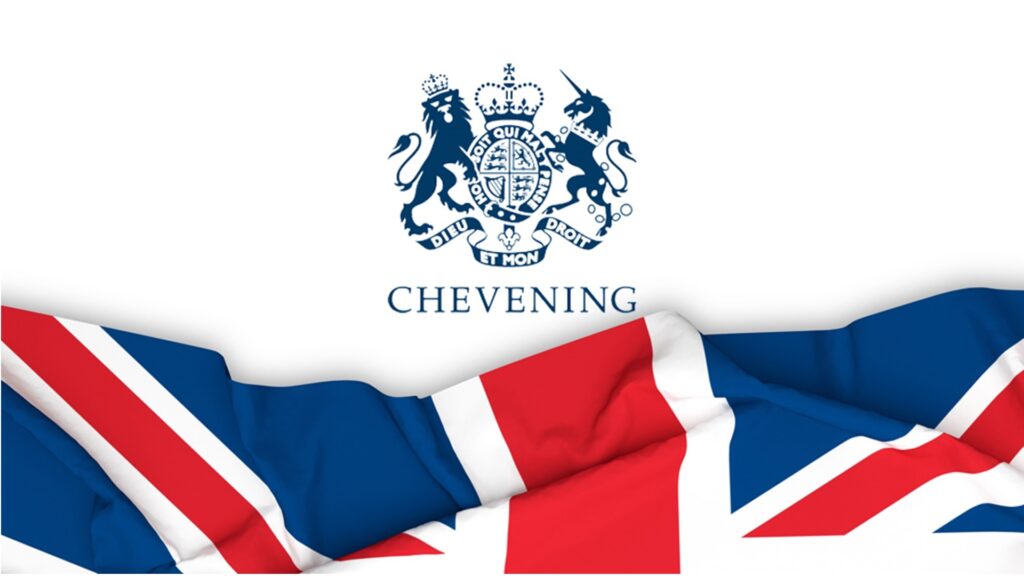“How to Apply for a Chevening Scholarship: A Step-by-Step Guide”2025 FREE
“How to Apply for a Chevening Scholarship: A Step-by-Step Guide”. The Chevening Scholarships are prestigious awards given by the UK government to exceptional students from around the world. Launched in 1983, they are funded by the British Foreign, Commonwealth & Development Office (FCDO) and partner organizations. These scholarships allow talented individuals with demonstrated leadership potential to pursue one-year master’s degrees in any subject at any UK university. Here’s an in-depth overview of the Chevening Scholarships:

Table of Contents
1. Overview of the Chevening Scholarships
Chevening Scholarships provide an opportunity for outstanding professionals worldwide to develop academically, establish networking connections, and experience UK culture. The scholarships cover a wide range of subjects, emphasizing the program’s dedication to supporting various fields and backgrounds. Recipients, or “Cheveners,” are expected to return to their home countries after completing their studies to contribute to the development of their societies.
2. Eligibility Criteria.”How to Apply for a Chevening Scholarship: A Step-by-Step Guide”
Chevening has strict eligibility criteria that applicants must meet. Here are the main requirements:
- Citizenship: Applicants must be citizens of a Chevening-eligible country or territory. Around 160 countries and territories are eligible each year.
- Educational Requirements: Applicants need a bachelor’s degree that will enable entry into a postgraduate program at a UK university. While this typically means an upper second-class degree (2:1 in the UK grading system), requirements may vary by program and institution.
- Work Experience: Candidates must have a minimum of two years (2,800 hours) of work experience. This can be in any field, but it must align with their study and career goals.
- English Proficiency: Chevening no longer requires an English language test, but applicants must meet the language requirements of the universities they apply to.
- University Choices: Applicants must select three different eligible UK university courses. Admission to one of these courses is required for the scholarship.”How to Apply for a Chevening Scholarship: A Step-by-Step Guide”
3. Application Process
The Chevening application process is competitive and extensive. The key stages include:
- Online Application: All applications are submitted online via the Chevening website, typically between August and November each year.
- Essay Responses: Applicants must complete four short essays. These essays focus on:
- Leadership and influence.
- Networking.
- Why they want to study in the UK.
- Career plans and how they intend to implement their skills after returning home.
- References: Two references are required to support the application.
- Interview: Shortlisted applicants are invited for an in-depth interview, typically held at a British embassy or high commission in their home country. The interview includes questions about leadership, networking, academic goals, and future career plans.
4. Financial Coverage

Chevening Scholarships are fully funded, covering:
- Tuition Fees: Full tuition for a one-year master’s program.
- Living Allowance: A monthly stipend to cover living costs while studying in the UK. This allowance is determined based on the region and location.
- Travel Costs: An economy flight to and from the UK.
- Additional Grants: Some additional grants for covering visa costs, medical tests (such as TB tests, if required), and travel expenses.”How to Apply for a Chevening Scholarship: A Step-by-Step Guide”
5. Networking and Professional Development
One of the most valuable aspects of the Chevening Scholarship is the networking and development opportunities it offers:
- Chevening Network: Cheveners become part of a global network of more than 50,000 alumni who hold influential positions in government, business, media, and beyond.
- Events and Training: Scholars are invited to various conferences, events, and workshops focused on professional and leadership development.
- Mentorship Opportunities: Many Chevening Scholars benefit from mentorship and guidance from former Cheveners, helping them make the most of their time in the UK.
6. Expectations from Scholars

Upon completion of their studies, scholars are expected to return to their home country for a minimum of two years. This stipulation underscores Chevening’s mission to support the development of global leaders who can drive change within their communities. Scholars are encouraged to actively contribute to alumni networks, maintain connections with Chevening, and even mentor future applicants.”How to Apply for a Chevening Scholarship: A Step-by-Step Guide”
7. Impact of Chevening Scholarships
Chevening has contributed to the career development of many notable leaders and influencers globally. Alumni include ambassadors, business leaders, policymakers, and media figures. Many Cheveners have gone on to implement policies, start organizations, and lead projects that address critical issues like poverty, education, healthcare, and social justice in their home countries.
8. How to Increase Chances of Selection
- Work on Your Essays: Essays are a crucial part of the application. They should clearly highlight leadership qualities, commitment to community, and a well-defined career plan.
- Select the Right Course and University: Choose courses aligned with your career goals and research universities known for their strength in your chosen field.
- Professional Recommendations: Strong, credible references from leaders who understand your impact and potential can strengthen your application.
- Interview Preparation: Those shortlisted for interviews should be prepared to discuss their career goals, leadership experience, and networking strategy in detail.
The Chevening Scholarship is highly competitive, with thousands of applicants each year. However, the rewards are immense, providing recipients with a world-class education, a vast professional network, and the chance to make a positive impact in their home countries.







